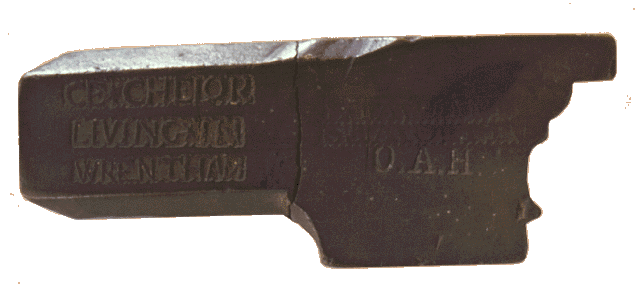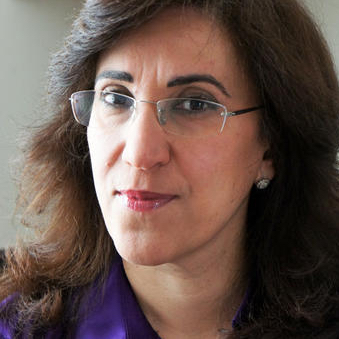SDC BRTI-AMERICA RADIO
Friday, May 26, 2017
Thursday, May 25, 2017
Tuesday, May 23, 2017
Madawi Al-Rasheed - Saudi Arabia: History & Politics
Monday, May 22, 2017
Saturday, May 20, 2017
Friday, May 19, 2017
Turkish President's Men Beat American Citizens Protesting Outside of Embassy
(CNN)On Tuesday afternoon, President Donald Trump and Turkish President Recep Tayyip Erdogan huddled at the White House -- and then gave a joint press conference.
Within hours, Erdogan was at the Turkish ambassador's home in upper Northwest Washington, watching as his personal guards participated in a bloody and violent clash with protesters gathered on the street outside the residence.
Erdogan watches brawl outside Turkish embassy 00:55
Cesar Chelor - America's First planemaker and manufacturer was a Slave
Cesar Chelor ( -1784)

Picture from Joel’s website (linked below)
When I first began collecting antique wooden planes, the name Cesar Chelor was an oft told inside joke. Chelor was a mid 18th c planemaker. He was owned by New England planemaker Francis Nicholson. When Nicholson died in 1753, he freed Chelor, providing him with land, and tools.
“As to my Negroman Caesar Chelo[r] considering his faithful service, his tender care, & kind & Christian carriage I do set him free to act for himself in the world & I do will and bequeath unto him his bed and beding, his shift and clothing, his bench & common bench tools, a set of chisels, one vice, one sithe & tackling & ten actes of land to be set of to him at the end of my woodland…¦& one third part of my timber.”
From Joel’s website (thanks Joel)
Chelor continued making planes, stamping them with his own name. Today, these rare planes are among the best known and most valuable antique wooden planes on the market. A single plane can be worth thousands of dollars. Finding one among a box of dirty planes with rusty irons is the hope of every collector. They are the proverbial diamond in the ash can. Collectors often joke that they bought a box of duds for $5 only to find a Chelor (gloat gloat). Or that uninitiated collectors who got some woodies in a box lot with a crispy (good condition) Stanley 45 should send all those marked “Chelor” to famed internet tool dealer Todd Hughes, who will know how best to dispose of them (selling them for thousands of dollars).
For this reason, Chelor deserves the honored top billing for Woodworking Black History Month. The story of his bondage, freedom, and subsequent business success is such an American tale. The best part about it is that it reminds us that Black History is really American history. Chelor deserves the attention he gets because he reminds us that a hard working woodworker can overcome any adversity.
To learn more about Chelor, google him or start here at my friend Joel’s website.
Adam
P.S. Note the use of the term “shift” in Nicholson’s will. I believe this was the word used for the long (often unisex) shirt worn by people of the 18th c and before. I’ve used this term before and had people look at me funny. Not sure when “shirt” took over for “shift”.
Cesar Chelor was a slave who belonged to colonial entrepreneur and earliest documented American planemaker, Francis Nicholson (1683-1753). Chelor became Nicholson's apprentice and later became a planemaker in his own right. When Nicholson died in 1753, he willed Chelor his freedom, a workshop, and the tools and material to continue on independently. Chelor has the distinction in being the earliest documented African American toolmaker in North America.
Acknowledgments
Cesar Chelor's legacy has survived because of a small group of tool collectors dedicated not only to finding interesting tools but also to researching the men who made them. In addition to recovering extant tools, researchers have gone back to these New England towns and looked up court registries, church lists, cemetery records, and census records in a quest for the worth of men's estates and their birth and death dates. In the United States, the Early American Industries Association is the source of most research on the history of tools and industrial practice. Much of the information for this exhibit comes from consulting members and researching publications of the EAIA. We would like to thank the EAIA, the Pollak family, and Herb Kean for their aid and support in preparing this exhibit.
Francis Nicholson (1683-1753) the father and founder of the business.
Francis Nicholson moved from Rehoboth, Massachusetts to Wrentham, Massachusetts in 1728. In colonial times, Wrentham was a small, growing town that was on the main road to Boston. As a result, there were plenty of travelers and plenty of business. It was a good place for an ambitious tradesman. Nicholson was married four times and was a deacon of his church. Among the other businesses he had, Nicholson also owned a mill.
John Nicholson (1712-1807) Francis' son.
John Nicholson was an apprentice to his father. Francis and John worked together in Wrentham until John moved several miles away to Cumberland, Massachusetts in 1739. In 1763, ten years after his father's death, John moved back to Wrentham. In records of this time, John is referred to as a "gentleman," which indicates he did not return to be a planemaker. A reasonable theory could be that as a successful businessman, with land and businesses inherited from his father, he needed to be in Wrentham.
Cesar Chelor.
Chelor's birthdate and place of birth is not known, as he was a slave and this information would not have been recorded. We do know that Chelor was owned by Francis Nicholson as early as 1736. He was admitted as a member to the Congregational Church in Wrentham Center in 1741, probably around the age of 21. In 1758 he married Juda Russell and had eight children. He died without a will in 1784 with an estate inventory valued at 88 pounds 2 shillings.
Fortunately for us, the makers of wooden planes are rarely anonymous. It was common for makers to stamp their name and where they lived at the front of a wooden plane.
The stamp showing his full name is very rare, with less than a half dozen samples surviving. Research is currently being conducted to establish a complete inventory of all known Chelor planes. Several hundred planes with the Chelor stamp exist, a considerable number since two centuries have elapsed.
Even more planes with the Francis Nicholson stamp have survived. Since so many of their tools survived, we can infer that both Chelor and Nicholson's businesses were successful. Planes stamped by John Nicholson, however, are far more rare.
Thursday, May 18, 2017
Subscribe to:
Posts (Atom)




